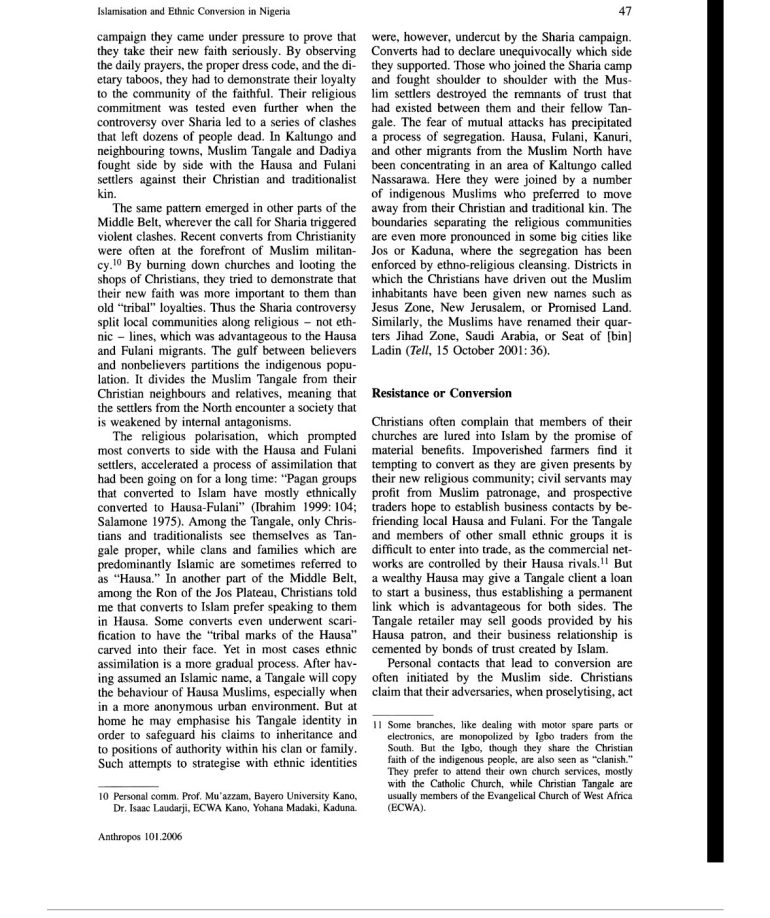Opinion
By Patrick Anum
The conversation around Islamization in Nigeria traces back to early colonial period. Historically, the British divided the Northern Protectorate into two parts: the Islamic emirates in the far North and the so-called “pagan districts” in the lower North, where traditional religion prevailed.
While Christian missionary activities were permitted in these non-emirate areas, they were restricted in the northern emirates.
This division significantly influenced the religious landscape of the lower North. Many communities, eager to distance themselves from the emirate system, adopted Christianity. As a result, regions like present day – southern Gombe, Bauchi, Kebbi, Borno, Yobe, and states across the Middle Belt—including Adamawa, Taraba, Benue, Plateau, Nasarawa, and southern Kaduna—came to be predominantly Christian.
Islam, however, began to gain influence in the Middle Belt in the late 1940s and 1950s, largely due to the efforts of Ahmadu Bello, the Sardauna of Sokoto.
As the Premier of the Northern Region, he promoted Islam and Hausa culture as tools to unify the North under a shared cultural and religious identity, despite its many ethnic groups. He mandated the use of the Hausa language in civil services and exams, intending it to be the region’s primary language.
For many ethnic minorities who converted to Islam, this shift brought expectations of adopting Hausa customs and language.
The goal was that over time, those who spoke Hausa or converted to Islam, whether consciously or unconsciously, would begin to lose touch with their own indigenous identities.
The Sardauna’s death during the 1966 coup halted these policies temporarily.
In recent years, German researchers began to have significant interest in the upper Eastern part of the Middle Belt
Reading their studies have been astonishing to me as they have studied the treats faced by Middle Belt minorities in regions such as southern Gombe, Borno, Yobe to adopt not only Islam but Hausa and Kanuri culture
In southern Kaduna, Borno and Yobe, people have been kidnapped solely with conversion in mind
Their research highlighted the lack of protection for these communities since Nigeria’s Fourth Republic, which began in 1999.
Before this, southern military officers stationed in the these areas often shielded minorities from often radicalized Hausa, Fulani and Kanuri communities around them which reduced pressures to convert to Islam or assimilate into Hausa culture.
However, with the reintroduction of Sharia law into the twelve states in the North, these protections were lifted, and minority autonomy decreased
This situation has sparked broader concerns.
During the time of the Sardauna, he wanted to impose the Hausa language as the imprint of the North and similarly, during the Buhari years, we saw something similar,
only that it was at national level where the attorney general spoke in Hausa and the BRICS purported currency a being purported to be in Hausa
That promotion of Hausa as the National identity, when no similar promotion of Yoruba or Igbo at national level would be tolerated, shows the mindset
It is even bewildering that any attempt to resist or challenge such ethnic expansionist policies is often met with accusations of Islamophobia, which act as a diversion away from the ethnic aspects of these issues.
A solution to all these lies in promoting minority autonomy in these parts
If state creation isn’t feasible, it could still be crucial to empower minorities to protect their lands, gain political representation, and have a voice at the federal level.
For example, in 1999, President Obasanjo empowered Middle Belt minorities, which temporarily eased pressures to assimilate to a hybrid Hausa-Islamic identity. However, this period did not achieve long-term autonomy reforms.
Without greater within state – or regional autonomy and representation, concerns about Islamization, ethnic bigotry, and fears of domination may continue.
Views expressed by contributors are strictly personal and not of The Yoruba Times
